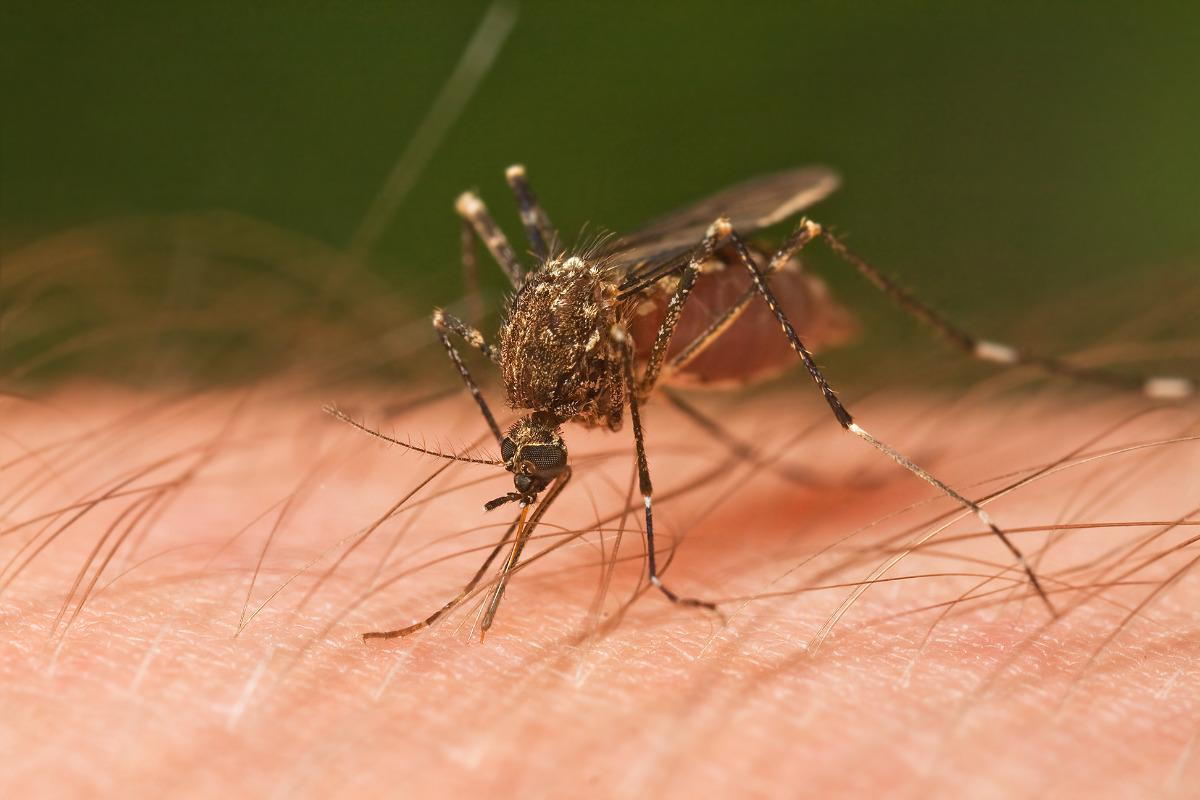Mosquito Myths: Five Myths About Mosquitos and Heartworm Disease in Pets

- posted: May 13, 2022
Mosquito Myths: Five Myths About Mosquitos and Heartworm Disease in Pets
Warm, humid weather has arrived and so soon will those annoying mosquitos. Mosquitos carry numerous types of illnesses infecting both humans and animals, but the one we worry about most frequently is heartworm disease. Here are five common myths about mosquitos and heartworm disease.
- My pet never goes outside, he can’t get heartworm disease: Okay, many cats and maybe some dogs never plant their feet outside; however, mosquitos most certainly can find their way inside homes. Don’t tell me you’ve never found a mosquito in your house--I know I’ve seen them in mine. And, unless you never take your pet to the vet (which is unlikely if you’re a good pet parent) he or she has been outside at some point in time even if only briefly. So, while indoor pets may have a slightly lower incidence of being exposed to heartworms, it only takes one bite to spread this deadly illness. Being indoors is no reason not to protect your pet.
- My Pomeranian/Chow Chow/(insert other longhaired breed here) has a thick coat and isn’t bitten by mosquitos: Pets with thick coats may be less likely to be bitten by mosquitos, but virtually all pets have short hair on their ears, muzzles and bellies, so there is still a chance of mosquitos finding a nice place to bite. Do you really want to take the chance of not protecting your pet against heartworm disease just because he or she has a long coat?
- Heartworm disease isn’t common in Pennsylvania: Heartworm positive cases in PA are on the rise, there have been over 1200 positive dogs (and 13 cats) so far in 2022 in Pennsylvania, 53 of which were in York County. We’d like to think we don’t see higher numbers because many of our patients are already using heartworm preventatives. But, pets not on preventatives remain at risk, even in Pennsylvania. Traveling with our pets may allow increased exposure to mosquitos carrying heartworm.
- Other animals don’t get heartworm disease, only dogs: While dogs are the main species affected, heartworms can also infect wild canids such as coyotes and wolves, foxes and cats and ferrets. Wild species such as coyotes may serve as reservoirs for heartworm disease. While heartworms are not directly contagious from one dog to another, the disease is spread when a mosquito bites an infected animal then bites another animal spreading immature heartworms into the bloodstream. You can bet coyotes and fox are not taking heartworm preventative, so make sure your dogs and cats are protected. Cats and ferrets are not the normal hosts for heartworm, so, if infected, they tend to have more heart and lung damage done by the nearly foot-long worms and, there is no available treatment for heartworm disease in these species. There are heartworm preventatives for cats—Feline Revolution is one that we recommend.
- My pet is screened for heartworms with a stool sample, right? Fecal samples check only for intestinal parasites. Heartworm is a blood parasite, so, a blood not a stool sample is needed. The test looks for proteins produced by heartworms in the blood.
- As you can see, heartworm disease is a serious and relevant disease, even in South Central PA and even for indoor pets. There are a number of safe and effective heartworm treatments available for dogs and cats and they cost about $10-20 dollars a month or less—less than what many of us spend at coffee shops or fast food restaurants per month. Please talk to our staff about heartworm protection for your pet. Don’t let your pet be the one that gets bitten by that mosquito!
- This blog brought to you by the Patton Veterinary Hospital serving Red Lion, York and the surrounding communities.
- https://www.petsandparasites.org/parasite-prevalence-maps#/2022/all-year/heartworm-canine/dog/united-states/pennsylvania
- Photo: Wikemedia.org
Location
--mi
Patton Veterinary Hospital
Address
425 E Broadway
Red Lion, PA 17356
Contact Information
(717) 246-3611
